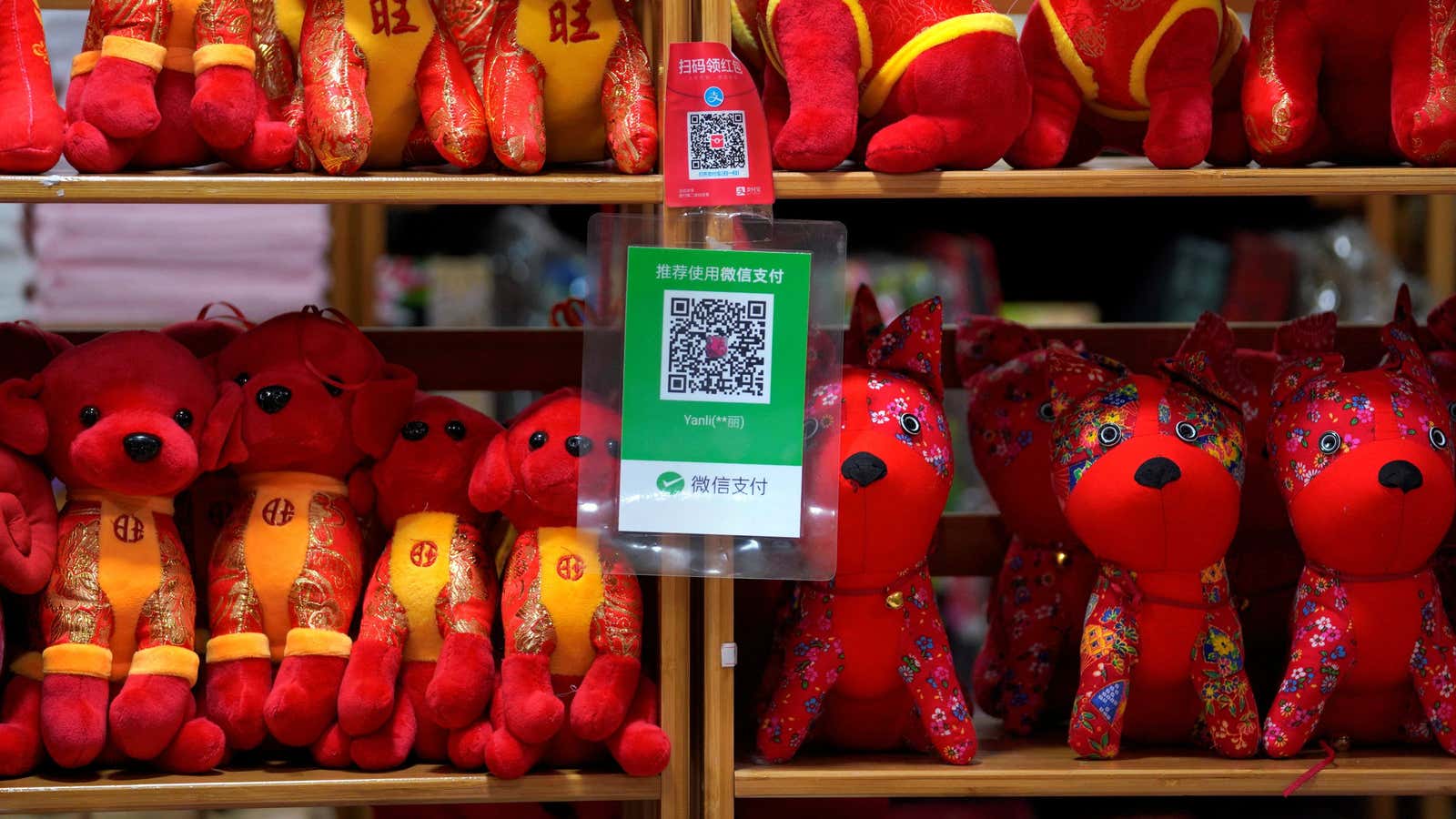Mobile money is getting a boost in Europe: A new initiative plans to make six of the region’s smartphone wallets interoperable with each other, creating a total network of 5 million users in 10 European countries, from Finland to Portugal. The burgeoning system could potentially pose a challenge to the Visa and Mastercard card-payment duopoly.
Notably, the mobile wallets—Bluecode, ePassi, Momo Pocket, Pagaqui, Pivo, and Vipps—are working with Chinese fintech giant Alipay to develop a unified QR code, according to a statement released today. Around 190,000 merchants in Europe accept payments from the wallet providers, and Chinese tourists using Alipay (membership) would also be able to tap into the system. They plan to use a QR code format provided by Chinese firm, and to expand the collaboration elsewhere in Europe over time.
QR codes (short for “quick response”) have soared in popularity as a way to pay for things in China, but they’ve been slower to catch on in the West. Consumer habits can be slow to change, and the existing transaction technology—from contactless in the UK to swiping in the US—is entrenched. Indeed, some geographies are experiencing something of a golden era for flashy payment cards.
The initiative with Alipay could give QR codes a jumpstart, however, by allowing the smartphone wallets in Spain and Germany, for example, to talk to each other, says Masood Arai, vice president of payment at ePassi. Notably, the network will be separate from banks as well as the Visa and Mastercard networks that dominate digital payments in the West. That feature could be attractive to people in Nordic countries, who are heavily reliant on digital payments networks operated by US-owned companies.
There still could be a role for banks and card networks if QR codes catch on. Users often link their wallets to bank accounts and debit cards, Arai says. Christian Pirkner, CEO of Blue Code International, said in the statement that the company’s vision is to link European banks with mobile payment offerings.
“It’s just a network of payment wallets doing payments together,” says Arai of ePassi. But, he notes, it’s also “not reliant” on Visa and the banks to work.
